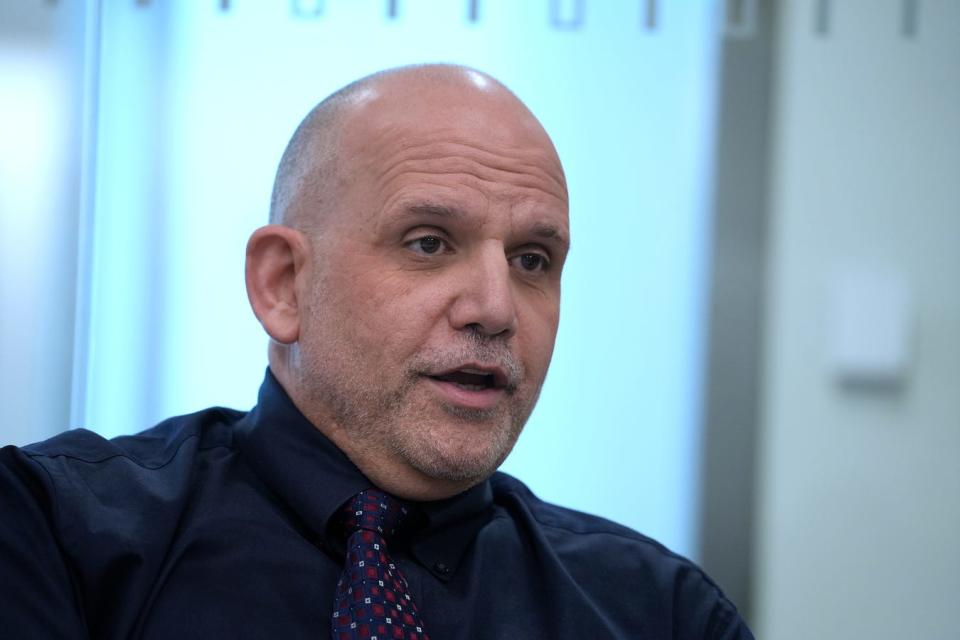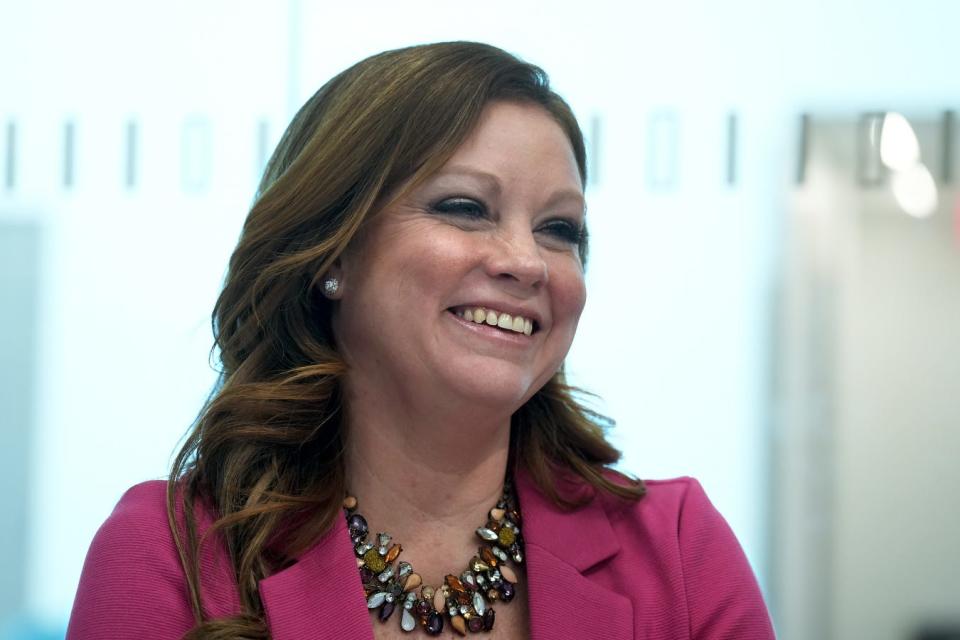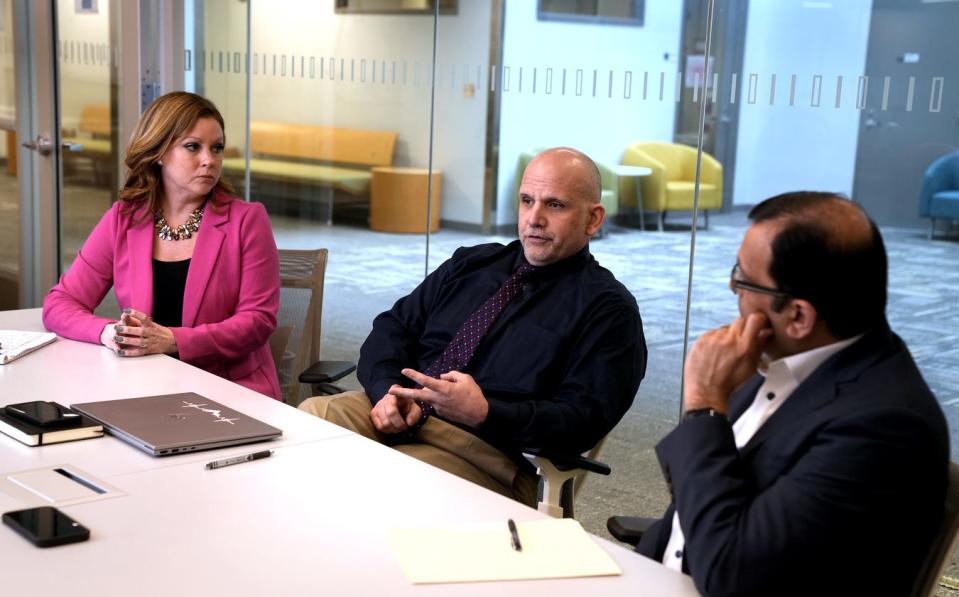To address the mental health provider crisis, Bryant launches new program. What to know.
Bryant University is putting into action a plan that's been on the school's agenda for years: a doctoral program in clinical psychology.
It's an effort to fill gaps in health care widened by the pandemic, during which mental health problems spiraled into a massive need that overwhelmed doctors. As Rhode Island and the rest of the country continue to grapple with the shortage in providers, Bryant accelerated its launch of the program, announcing it this week.
"There’s a shortage and a need for qualified behavioral health professionals in the state and in the nation, so we saw an opportunity to help contribute to that cause," said Joseph Trunzo, associate director of Bryant's School of Health and Behavioral Sciences. "So we really elevated our efforts to get this across the finish line."
Trunzo holds several other titles, including professor of psychology, clinical psychologist and president of the Rhode Island Psychological Association. He's witnessed the crisis unfold and seen its impact on some of the most vulnerable patients in the state.

"Just about every behavioral health professional that I know has a waitlist, and it’s been really hard to get access, particularly for populations in higher need like children and adolescents," Trunzo said.
Trunzo said the waitlist is shorter for those with the means to forgo insurance and pay out of pocket, but most don't have that luxury. As The Providence Journal has previously reported, obstacles for Medicare and Medicaid patients are even tougher.
More: Many RI dentists don't accept Medicaid. Those patients struggle to find care.
Months in crisis for one mother trying to find help for her child
Kirsten Hokeness is the director of Bryant's School of Health and Behavioral Sciences, which launched two years ago as part of the university's broader effort to expand its offerings and reinvent its image.
For Hokeness, the new psychology program is personal. Her daughter faced anxiety before the pandemic began, and it worsened over time.
"It probably took me three to four months, I think, to actually get her in to actually see anybody," said Hokeness. "And that was with someone who was willing to actually pay and has really good insurance and had the resources to keep looking and finding."
More: The doctor shortage is crippling health care. Could pharmacists help?
At Bryant, too, needs among students have risen.
"Even at our campus we have seen the number of students and the number of appointments our students are seeking with counselors have gone up significantly," said Provost and Chief Academic Officer Rupendra Paliwal.
According to Bryant spokeswoman Karen Greco, between the 2015-2016 academic year and the 2022-2023 academic year, "counseling services appointments more than doubled."

What will the program entail? And when will it start?
The five-year PsyD program, as it's called, differs significantly from PhD programs in psychology. Bryant's program will focus on preparing students for jobs – not research siloed in the academic world – and ready them to step out into the field and see patients.
In Rhode Island, the status of the mental health provider shortage is a murky picture.
"We actually have a decent number of psychologists in the state … but a number of those psychologists are research psychologists," Trunzo said. "They’re centered at Brown. They’re centered at URI. They aren’t necessarily providing clinical services in the community."
Bryant's program will offer students general studies and two specialization tracks: one in child and adolescent psychology and another in health psychology and behavioral medicine. The former will increase the number of providers serving children, and the latter will put psychologists in medical facilities like primary care offices. The idea is to cut down barriers to access and build convenience for patients.

More: RI dentists warn of looming shortage 'superstorm.' Here's what's driving it.
The program will begin taking applications this September for its first cohort in fall 2025. Each cohort will be kept small, at around 15 students each.
But before Bryant can start advertising the program, it will need approval from a regional accreditor, which it expects next month.
This article originally appeared on The Providence Journal: Why Bryant University is launching a doctoral psychology program

